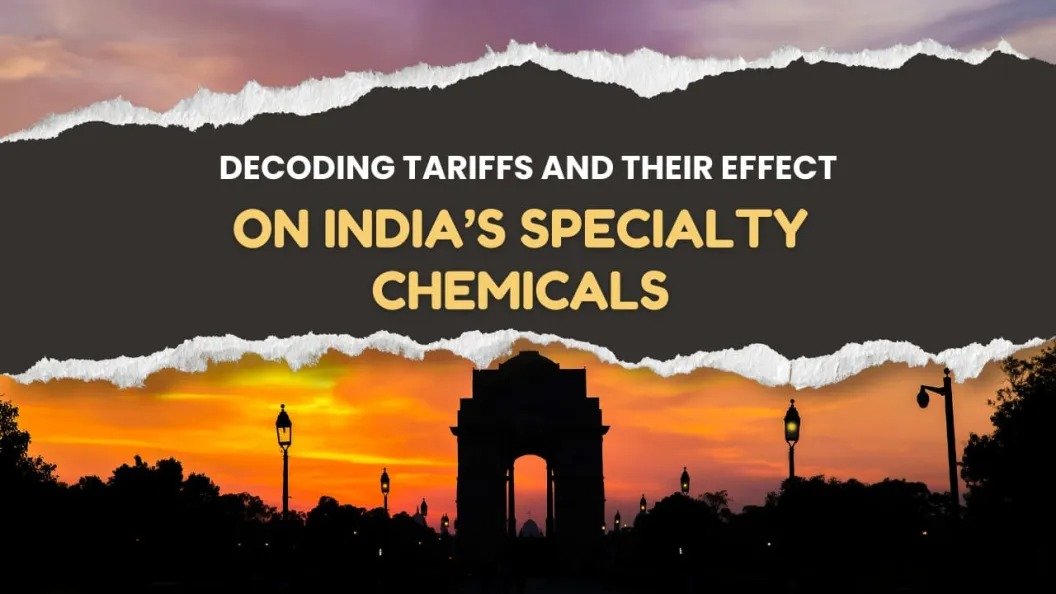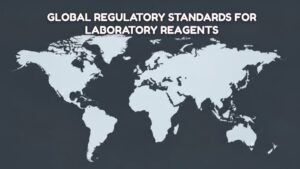In recent years, tariff tensions have emerged as a significant disruptor in global trade, particularly for industries dependent on international supply chains. The specialty chemical sector in India, a vital contributor to manufacturing, agriculture, pharmaceuticals, and consumer goods, has been directly affected. As nations impose reciprocal tariffs to protect domestic industries or respond to trade imbalances, Indian specialty chemical companies face both challenges and opportunities.
This blog explores how tariff disputes influence key specialty chemical segments in India, the ripple effects on domestic and global markets, and strategies that companies can adopt to stay competitive in a shifting trade environment.
Understanding Tariff Tensions in the Specialty Chemical Sector
Tariffs are essentially taxes imposed on imported goods, often intended to protect local industries or as a countermeasure against perceived unfair trade practices. While tariffs can sometimes boost domestic production, they can also increase raw material costs, limit market access, and disrupt supply chains.
In the specialty chemical industry, tariff tensions can be particularly damaging due to:
- Heavy reliance on imported raw materials like intermediates, solvents, and catalysts.
- A strong export orientation in segments such as dyes, pigments, agrochemicals, and pharmaceutical intermediates.
- Long-term contracts with international clients, where sudden cost changes can impact profitability.
Key Specialty Chemical Segments Affected by Tariff Tensions
1. Agrochemicals
India’s agrochemical sector, which produces herbicides, insecticides, and fungicides, depends on imports of key intermediates from China. Tariffs on these imports can raise production costs, making Indian products less competitive globally.
Additionally, countries importing Indian agrochemicals may impose counter-tariffs in retaliation for India’s trade measures, further narrowing export opportunities.
2. Dyes and Pigments
India is one of the largest producers and exporters of dyes, pigments, and dye intermediates. However, this segment relies heavily on imported specialty chemicals like reactive dyes intermediates from countries including China, Germany, and Japan.
Tariff hikes can:
- Increase input costs, forcing manufacturers to raise prices.
- Make Indian exports less attractive in global markets where competitors operate tariff-free.
3. Pharmaceutical Intermediates
The Indian pharmaceutical industry sources a large percentage of active pharmaceutical ingredients (APIs) and intermediates from abroad. Tariff-related cost increases in these inputs can impact not just pharma exports, but also domestic drug pricing, a politically sensitive issue in India.
Specialty chemicals like fine chemicals and reagents used in pharma manufacturing are particularly vulnerable to these tensions.
4. Water Treatment Chemicals
Water treatment chemicals, including specialty coagulants, flocculants, and corrosion inhibitors, often require imported additives and raw materials. Tariff escalations in this segment could slow the adoption of advanced water treatment solutions, affecting industrial and municipal projects.
5. Construction Chemicals
With infrastructure and real estate growth, demand for specialty construction chemicals, admixtures, waterproofing compounds, and sealants is rising. However, tariffs on imported resins, additives, and specialty binders can increase costs for domestic manufacturers and contractors.
Economic Impacts of Tariff Tensions
- Rising Production Costs
Tariffs increase the landed cost of raw materials. For cost-sensitive specialty chemical products, even a 5-10% cost rise can erode profit margins.
- Export Competitiveness
India’s specialty chemical exports compete with countries offering similar products at lower costs. Higher prices due to tariffs can push buyers toward alternative suppliers.
- Supply Chain Disruptions
Unpredictable tariff changes lead to inventory mismanagement and procurement delays, creating bottlenecks in production schedules.
- Investment Uncertainty
Investors may hesitate to fund new plants or expansion projects in an environment of volatile trade policies.
Opportunities Amid Tariff Tensions
While the challenges are significant, tariff tensions also open strategic opportunities for Indian specialty chemical players:
- Domestic Substitution– Import substitution through local manufacturing can reduce reliance on foreign suppliers.
- Market Diversification– Targeting untapped markets with favorable trade agreements can offset losses in tariff-affected regions.
- Technology Upgradation– Investing in R&D can help develop alternative raw materials or processes to bypass tariffed products.
Strategies for Indian Specialty Chemical Companies
To navigate the tariff landscape, Indian specialty chemical companies such as GSP Chem are increasingly adopting proactive strategies:
- Backward Integration
Producing key intermediates in-house to reduce dependency on imports.
- Sourcing Diversification
Working with multiple global suppliers to minimize the impact of tariffs from any one country.
- Value-Added Products
Focusing on high-margin specialty chemicals where quality, performance, and customization matter more than price alone.
- Trade Advocacy
Engaging with government trade bodies to negotiate favorable tariff structures for critical inputs and export products.
- Sustainability Focus
Leveraging the global shift towards eco-friendly specialty chemicals to position India as a premium supplier, despite cost pressures.
GSP Chem’s Approach to Mitigating Tariff Risks
GSP Chem, a trusted Indian specialty chemical manufacturer and exporter, has been actively adapting to tariff-related challenges by:
- Expanding its product portfolio in pH indicators, reagents, and fine chemicals to cater to niche global demand.
- Building strong domestic supply chains to reduce reliance on tariff-heavy imports.
- Optimizing manufacturing processes for cost efficiency without compromising quality.
- Exploring new geographies with trade-friendly agreements to expand export reach.
This adaptability not only ensures business continuity but also strengthens the brand’s position as a global-ready chemical supplier from India.
The Road Ahead
Tariff tensions are unlikely to disappear soon, especially as nations increasingly turn to protectionist policies to shield domestic industries. For India’s specialty chemical sector, the ability to innovate, localize, and diversify markets will determine long-term resilience.
Companies that invest in R&D, supply chain resilience, and sustainable manufacturing will not only weather tariff challenges but also emerge as global leaders in the specialty chemical space.
For businesses like GSP Chem, this is both a test of adaptability and an opportunity to showcase India’s potential in high-value, export-driven manufacturing.
Conclusion
While tariff tensions pose undeniable challenges for the specialty chemical industry in India, they also encourage strategic thinking and innovation. By focusing on local manufacturing, market diversification, and value addition, companies can safeguard their growth in an uncertain trade environment.
As India strengthens its position as a global specialty chemical hub, proactive players like GSP Chem will be at the forefront, turning tariff-related challenges into opportunities for sustainable, long-term growth.








